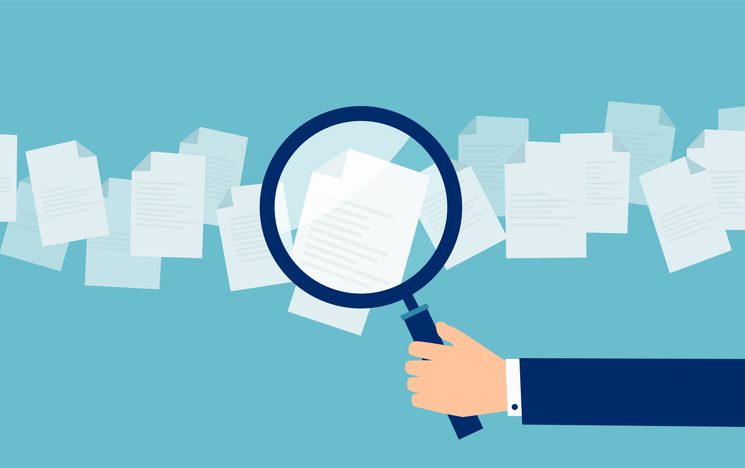What you need to know about HMRC tax investigations
What happens during a tax investigation? Catherine Heinen FCCA of TaxAssist Accountants explains everything you need to know about HMRC tax investigations.

What is an HMRC tax investigation?
A HM Revenue & Customs (HMRC) tax investigation may also be known as a compliance check, or enquiry.
HMRC uses its advanced systems to build a complete financial picture of businesses and individuals. Some of this information may conflict with others, raising red flags. These inconsistencies can trigger an investigation. On rarer occasions, HMRC may contact you or your business randomly.
There are two different types of HMRC tax investigation:
- aspect enquiry – where HMRC is concerned about a particular part of the accounts or tax return and require more detail from you
- full enquiry – where there is a significant risk of error, HMRC may review a tax return or set of accounts in its entirety
What happens during an HMRC tax investigation?
First, HMRC will send you a letter explaining the type of investigation and what information it needs from you. You may not know why HMRC selected you for an enquiry.
You must not ignore the letter, if you do not respond, HMRC may take this as a sign you are hiding something. If you do not have the time or ability to cope with the enquiry, you can approach HMRC to explain your position. It may be prepared to give you extra time to answer its questions.
Information requested
You will need to provide HMRC with the information requested and it may need all the documents used to complete your tax return. If it has been unable to get to the bottom of its investigation, HMRC may request further information. HMRC’s tax investigators may, under certain circumstances, liaise with third parties regarding your business’ operations.
If the information that HMRC requests are reasonably required and you fail to provide them to HMRC, you may be charged a penalty of £300 and up to £60 per day for each day the information remains outstanding. If you have a reasonable excuse for not providing the information, HMRC will not charge a penalty, if you provide the information within an agreed timescale.
If you speak to HMRC on the telephone, it’s important you make a note of the call including the date and the name of the person you spoke with. Navigating an HMRC tax investigation can be complex and challenging, which is why seeking professional advice is advisable.
Outcomes
HMRC may find there are no discrepancies and it may close its investigation with no further action.
Where HMRC finds insufficient tax has been paid, or if the loss of tax is due to careless or deliberate behaviour, it can go further back to earlier periods. In some cases, HMRC can go back 20 years and if they are not within the 12-month time limit, it can re-open earlier years by way of a ‘discovery’ assessment.
HMRC will write with a decision notice or contract settlement which confirms the investigation is over. Decision notices are usually received in the form of a letter detailing exactly what the final position is and can include a penalty notice or assessment.
You have the right to appeal HMRC’s decision within 30 days of the decision notice.
A contract settlement is a legally binding agreement between HMRC and the taxpayer, whereby the taxpayer agrees to pay the money and HMRC agrees not to use its powers to recover the money.
How long do tax investigations last?
HMRC has 12 months from the date you filed your tax return to open an enquiry. If HMRC contacts you outside of the time limit, you can challenge this. It may be necessary to seek advice first, accountants have experience in dealing with HMRC and will be able to ensure that any correspondence is effective.
The length of an HMRC tax investigation will depend on how many areas of a business are being scrutinised. An aspect enquiry may take three to six months and a full enquiry may take at least one year, and on average more than 18 months from start to finish.
A lot of communication with HMRC will be via post, email and telephone. You, or HMRC, can also request a meeting. Having a meeting may be daunting but can save time and result in a shorter investigation. HMRC will let you know how long the meeting will take and supply you with an agenda. You can also ask for HMRC’s notes of the meeting, which you should check carefully and keep.
What is a Tax Investigation Service?
A Tax Investigation Service aims to relieve some of the stresses caused by tax investigations. Using an accountant to assist and defend your case when it comes to an HMRC tax investigation can offer you peace of mind and achieve the best outcome from the investigation.
Investigations can be time consuming, intrusive, disruptive and costly. Subscribing to a Tax Investigation Service means you get expert assistance with an investigation and the professional fees related to the investigation are covered.
About the author
Catherine Heinen FCCA is Technical Content Writer at TaxAssist Accountants and is a qualified Chartered Certified Accountant (FCCA). Catherine has worked at two accountancy practices in the UK top 50 accountancy firms according to Accountancy Age, and has extensive experience in accounts, tax returns and advising clients.
See also
What is the penalty for the late filing of a Company Tax Return?
Understanding the new HMRC late submission penalty scheme for VAT and ITSA payments
How to get government grants for your business
Find out more
Tax compliance checks (GOV.UK)
Images
Getty Images
Publication date
11 April 2024
Any opinion expressed in this article is that of the author and the author alone, and does not necessarily represent that of The Gazette.
